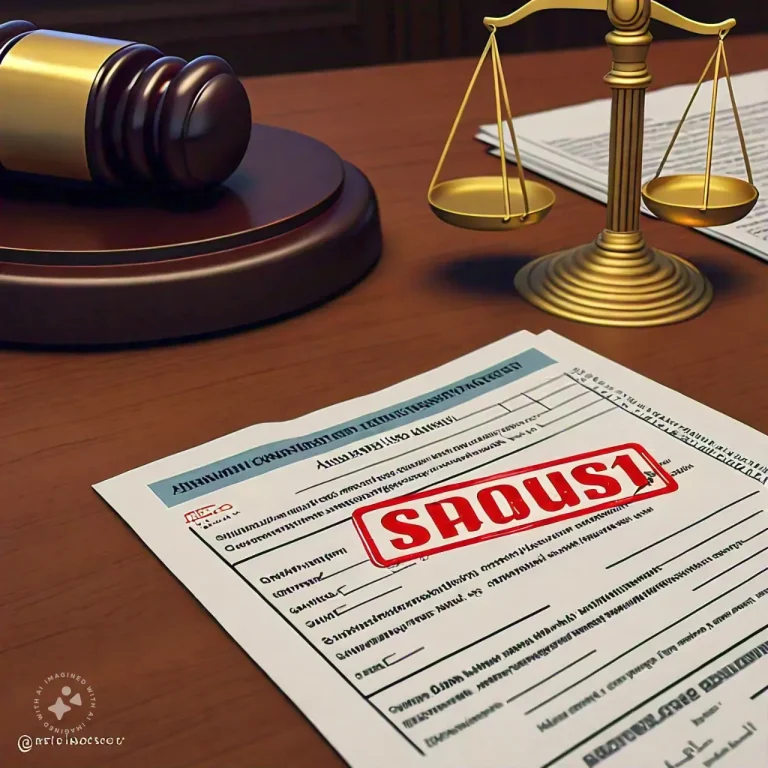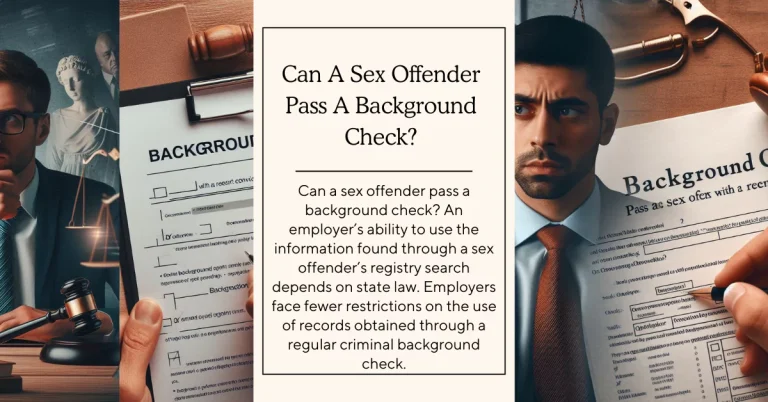
What is Pre-Adverse Action?
Pre-adverse action refers to a notice sent to job candidates when an employer is considering denying employment based on disqualifying information found in a background check. This step is crucial as it allows candidates the opportunity to dispute inaccuracies before any adverse action is finalized. According to the Fair Credit Reporting Act (FCRA), the pre-adverse action notice must be sent before any adverse action is taken, such as withdrawing a job offer or denying employment.
The Importance of Pre-Adverse Action Notices
The pre-adverse action notice serves multiple purposes:
- Transparency: It ensures that candidates are aware of the potential reasons for their disqualification.
- Fairness: It provides candidates with a chance to correct any misinformation before a decision is made.
- Legal Compliance: Adhering to FCRA regulations helps employers avoid legal pitfalls associated with adverse action lawsuits.
Also Read: Supporting Grants for Felons in Illinois 2025
The Adverse Action Process
The adverse action process consists of several key steps that employers must follow to ensure compliance with the FCRA and protect candidates’ rights:
- Pre-Adverse Action Notice: Employers must send a written notice to inform the candidate that they are considering adverse action based on their background check findings. This notice should include:
- A copy of the background check report.
- A summary of the candidate’s rights under the FCRA.
- Contact information for the consumer reporting agency (CRA) that provided the report.
- Waiting Period: After sending the pre-adverse action notice, employers must allow a reasonable period for candidates to respond. Typically, this period ranges from five to seven days, but it can vary based on company policy and state regulations. During this time, candidates can review their reports and prepare any disputes or explanations.
- Adverse Action Letter: If the employer decides to proceed with adverse action after reviewing any candidate responses, they must send an official adverse action letter, detailing their decision and providing further instructions on how candidates can dispute the information.
The Role of FCRA in Adverse Actions
The Fair Credit Reporting Act (FCRA) plays a pivotal role in regulating how employers conduct background checks and manage adverse actions. Under FCRA guidelines, employers must:
- Ensure that background checks are conducted by a legitimate consumer reporting agency (CRA).
- Provide candidates with clear information about their rights.
- Allow candidates the opportunity to dispute any inaccurate or misleading information found in their reports.
Failure to comply with these regulations can lead to significant legal consequences for employers, including potential adverse action lawsuits from affected candidates.
Can You Still Be Hired After a Pre-Adverse Action Letter?
Receiving a pre-adverse action letter does not mean you cannot be hired; however, it does indicate that there are concerns regarding your background check. If you can demonstrate that the information in your report is inaccurate or provide context for any negative findings, there remains a possibility for reconsideration. Employers may also consider additional information you provide, such as character references or evidence of rehabilitation.
Key Points to Remember:
- Respond Quickly: If you receive a pre-adverse action letter, respond promptly within the timeframe specified. Delaying your response could result in losing your job opportunity.
- Check Your Background Report: Ensure that all information is accurate and belongs to you. Mistakes can happen, and it’s essential to verify that your report reflects your true history.
- Provide Context: Offer explanations for any negative findings, such as past criminal convictions or financial issues. This could include documentation of rehabilitation efforts or proof of payment plans for debts.
Common Reasons for Pre-Adverse Action Letters
Understanding why you might receive a pre-adverse action letter can help you prepare an effective response. Common reasons include:
- Criminal Records: Any felony or misdemeanor convictions can raise red flags during background checks.
- Credit History Issues: Poor credit scores or bankruptcies may lead employers to question your reliability.
- Employment History Discrepancies: Falsifying employment history or credentials can result in immediate disqualification.
- Negative References: Feedback from previous employers can influence hiring decisions if it raises concerns about your character or work ethic.
How to Respond to a Pre-Adverse Action Letter
When you receive a pre-adverse action notice, you have two primary options:
- Do Nothing: If you choose not to respond, the employer will likely proceed with sending an adverse action letter, officially withdrawing their job offer.
- Respond Proactively: This option allows you to address inaccuracies and provide context for negative information. Here’s how you can effectively respond:
Steps for Responding
1. Review Your Background Report
Carefully examine your background report for errors or outdated information. Look for:
- Mistaken identity issues (e.g., records belonging to someone with a similar name).
- Information that falls outside legal reporting timeframes as defined by state and federal laws.
2. Prepare Your Dispute
If you find inaccuracies, prepare documentation supporting your claims. This may involve:
- Contacting the CRA that provided your report to dispute incorrect entries.
- Gathering evidence such as court documents or payment receipts related to disputed items.
3. Provide an Explanation
If there are legitimate negative findings, consider providing an explanation along with supporting documentation:
- Character references from previous employers or colleagues.
- Proof of rehabilitation efforts (e.g., completion of counseling programs).
- Documentation showing resolution of financial issues (e.g., settled debts).
4. Send Your Response
Submit your response promptly, ensuring it reaches the employer within the timeframe specified in the pre-adverse action notice. Keep copies of all correspondence for your records.
Conclusion
Understanding pre-adverse action and its implications is essential for both employers and job seekers. Employers must adhere strictly to FCRA guidelines to avoid legal repercussions and ensure fair treatment of candidates. Job seekers should be proactive in addressing any concerns raised during background checks by responding promptly and accurately to pre-adverse action notices. By following these protocols, both parties can navigate the hiring process more effectively and transparently.
In summary, while receiving a pre-adverse action letter can be concerning, it also provides an opportunity for candidates to clarify misunderstandings and potentially secure their desired position if they act swiftly and thoughtfully.
Read Also: School Grants For Felons -2024










